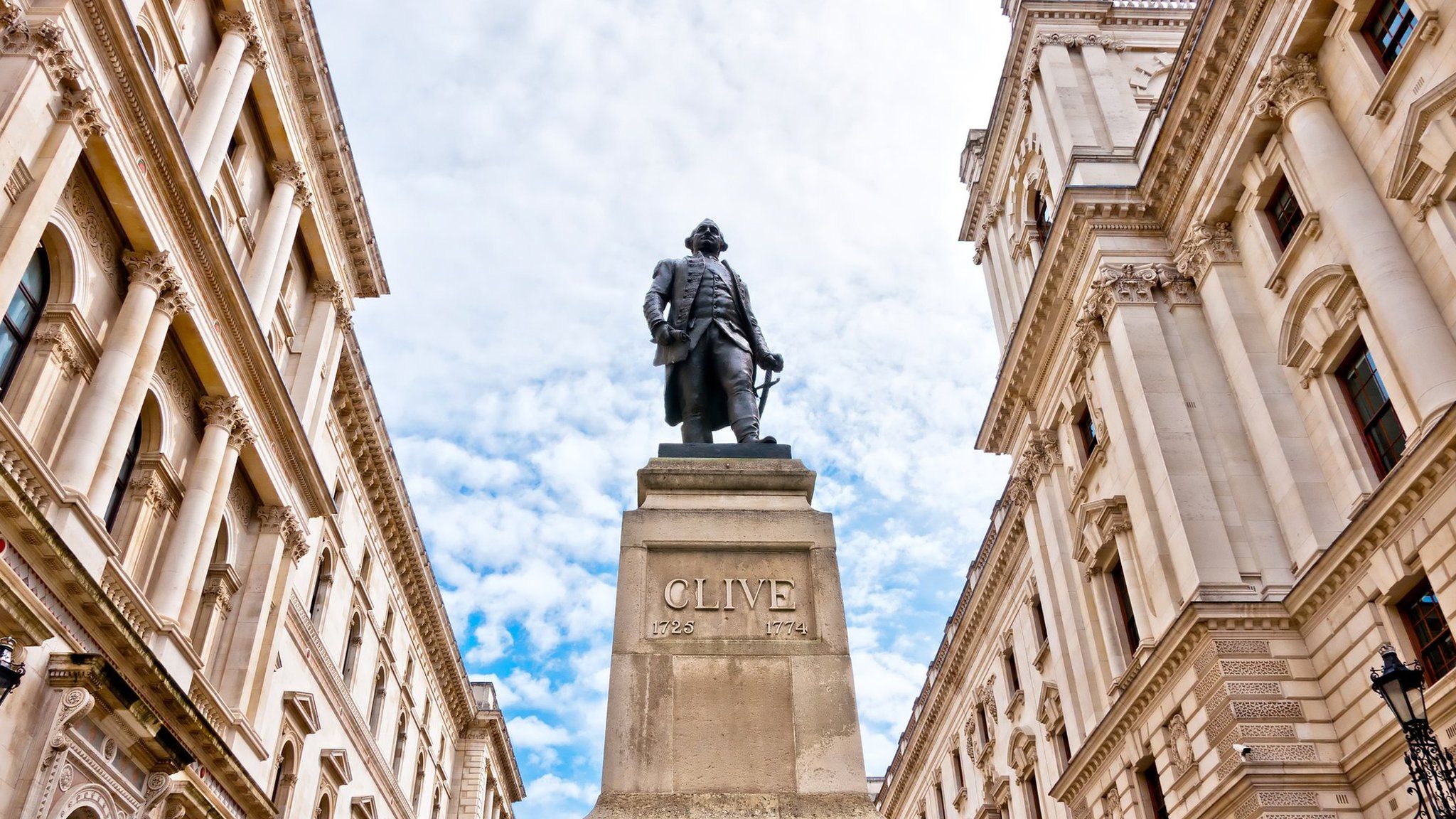ARTICLE AD BOX
 Image source, Getty Images
Image source, Getty Images
By James Landale
Diplomatic correspondent
The Foreign Office should be abolished and replaced by a new Department for International Affairs with "fewer colonial era pictures on the wall".
That is the conclusion of a group of senior former diplomats and officials in a pamphlet proposing a radical reform of Britain's foreign policy.
They say the Foreign Office is elitist, "rooted in the past" and "struggling to deliver a clear mandate".
In response, the department said it had clearly defined priorities.
It said these were namely supporting Ukraine, building a more secure Middle East, promoting international development and boosting UK security, prosperity and jobs.
The pamphlet proposes a new department with a broader remit in its place.
The authors say this would be better able to deliver on Britain's long-term international objectives.
They say the department could promote Britain's prosperity and security by better coordinating strategy on trade and aid, development and climate change - as well as traditional foreign policy.
Parliament should give the new department "core objectives and mandates" that "endure beyond the tenure of individual ministers" to avoid repeated short term policy change, the authors say.
And they argue there should be a new commitment by the government to spend 1% of national income on the department's international priorities - just as 2% of national wealth is currently committed to defence.
Image source, UCG/Getty Images
Image caption,The Foreign and Commonwealth Office was built to impress foreign visitors at the height of the British empire
The authors include former cabinet secretary Lord Sedwill, former director general at the Foreign Office Moazzam Malik, and Tom Fletcher, former ambassador and foreign affairs adviser to Tony Blair, Gordon Brown and David Cameron.
The pamphlet - The World in 2040: Renewing the UK's Approach to International Affairs - reflects the conclusions of a two-day conference involving former ministers, national security advisers and senior civil servants held in Oxford.
The authors are scathing of the Foreign Office, known officially as the Foreign, Commonwealth and Development Office (FCDO). They say it is "struggling to deliver a clear mandate, prioritisation and resource allocation".
It "all too often operates like a giant private office for the foreign secretary of the day, responding to the minister's immediate concerns and ever-changing in tray", they say. The merger between the FCDO and the Department for International Development "struggled to deliver", they add.
They say "the very name of the Foreign, Commonwealth (formerly 'Colonial') and Development Office is anchored in the past".
"A new Department for International Affairs (or Global Affairs) would signal a potentially quite different role. The physical surroundings on King Charles Street also hint at the Foreign Office's identity: somewhat elitist and rooted in the past," reads the pamphlet.
"Modernising premises - perhaps with fewer colonial era pictures on the walls - might help create a more open working culture and send a clear signal about Britain's future."
Image source, Mike Kemp/Getty Images
Image caption,The Foreign Office is responsible for protecting and promoting British interests worldwide
The Foreign Office - based in King Charles Street in Whitehall - was built in the 1860s in a grand classical Victorian style to impress foreign visitors at the height of the British empire.
Many paintings there tell the story of Britain's imperial past, including one - next to the foreign secretary's office - in which Africa is portrayed by a black boy holding up a basket of fruit.
'An off-shore, mid-sized power'
The essential argument of the authors is that Britain needs to have a clearer sense of its "purpose, history, interests and assets as an off-shore, mid-sized power".
It "will not be able to rely on just its traditional alliances with the US and Europe" but should instead form "pragmatic" new partnerships with other "middle powers" elsewhere in the world, they say.
Britain's security and prosperity, they argue, will in future be more closely tied to its economic and social relationships with regional powers, especially in Asia.
In making those new partnerships, the UK should be willing to "share rights" with emerging countries in reformed multilateral institutions, say the former diplomats.
It should accept new allies even if their "interests and values may be less closely aligned" to Britain's. The UK should "be more of a team-player, showing humility and respect" rather than trying to project an image of "greatness" to the world "that today seems anachronistic", they add.
The pamphlet says: "Regaining a sense of confidence requires a greater self-awareness of our position as an 'off-shore' nation.
"As a mid-sized power outside the European Union, there is potentially much to learn from countries like Norway, Canada, Switzerland and Japan who are able to use their size and independence to leverage significant influence on the world stage."
To do all that, they argue, requires a new international affairs department that steers "long-term strategy and policy" with much of the actual implementation carried out by more semi-autonomous agencies.
A FCDO spokesperson said: "We are maximising the benefits of merging diplomacy and development in the FCDO to better deal with global challenges, as seen in our responses to Russia's invasion of Ukraine and in the Middle East.
"We are committed to having an even greater impact and influence on the world stage - which is why we recently completed a review across the department to ensure we are effectively directing our funds, streamlining all our international policy work, and building our capability for the future."

 9 months ago
19
9 months ago
19








 English (US) ·
English (US) ·